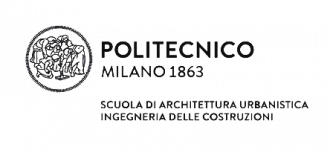The Research Thematic Seminars “The Global Architect” intend to investigate the global dimension of the contemporary architect, focusing specifically on the mechanisms of knowledge transfer and migration from and to different geographical and cultural realities.
They aim to do so by considering both different scales and design cultures. The seminars’ attention is directed to select places, events, objects, actors, and phenomena that have favored the transfer of forms of knowledge and expertise, practices, norms and codes, but also the circulation of people, materials, and financial resources. In particular, they aim to decode the processes of adaptation, hybridization, and resistance that often result from the encounter between the local and international dimensions of the contemporary architect’s practice. They also intend to consider how the action of linguistic and conceptual translation implicit to the transfer might lead to misinterpretation and misunderstanding. Central to the seminars is the definition of the question of cultural distance in its multiple meanings and possible interpretations. The contemporary architect’s global dimension can be investigated by looking at different aspects, such as the construction of professional networks, the role of specific figures of cultural mediation, and the vectors and vehicles that facilitate the transfer and circulation of individuals, resources and ideas.
Among the themes that the seminars take into consideration are: the traditional systems of education and the new forms of knowledge transmission; the role of media, both popular and specialized; the various types of professional mobility; the opening of markets to international practitioners; and the awareness of the transnational nature of most of world problems (addressed, for instance, by international cooperation). The seminars are organized through lectures intended to provide students with a set of theoretical and methodological references; students are expected to undertake a bibliographical research, to define their own methodological approach, and to frame their research program by writing a critical essay meant to become the basis for their thesis (being it of design, analytical, or historical/theoretical/critical nature).
Theses might address a plurality of research questions and choose different methodological approaches. The research themes explored by the Seminar are:
- International competitions. Starting from the analysis of the documents accompanying international competition briefs, students might develop different types of theses. In the case of a design thesis, for example, the focus might be on the “cultural distance” and on the encounter between students’ own background and the “local culture” of the city and country where the competition takes place. In the case of a historical-critical research thesis, students might investigate internationalization as a strategy of self-promotion in the global competition between cities and regions.
- International cooperation. A research by design carried out within the frame of international cooperation programs for developing countries, with a particular attention to topics related to sustainable urbanism and architecture, and conducted in cooperation with NGOs and other international organizations (such as UN-Habitat, UNWRA, UNHCR, UNESCO, and UNICEF).
- Transnational design practices. Students can engage in any research theme that implies the encounter and possible dialogue between professional and technical practices, experiences, skills, competences, etc. originating in different cultural and geographical contexts.
- International education and critical distance. International students are encouraged to develop a research by design in and for their home countries, critically questioning the cultural distance of these settings from the context of their education at the Politecnico di Milano.
- International events. The phenomena of globalization in architecture are often expressed and emphasized by the proliferation of spectacular events (Biennials, Festivals, Congresses) where architects, students, developers, and politicians foster the debate on contemporary design practices. These events often promote “calls for papers” and “call for projects” that might be used by students as the starting point for their theses.
- Working at global scale. This last theme focuses on the changed dimension of the problems that the modern architect has to face, both in terms of design scale and geographical spectrums. Among the possible research subjects are the coming to the fore of “world cities” and “megacities”, issues of sustainability and mobility, the resistances to global models of urbanization, and the opposition between “global” and “local”.
